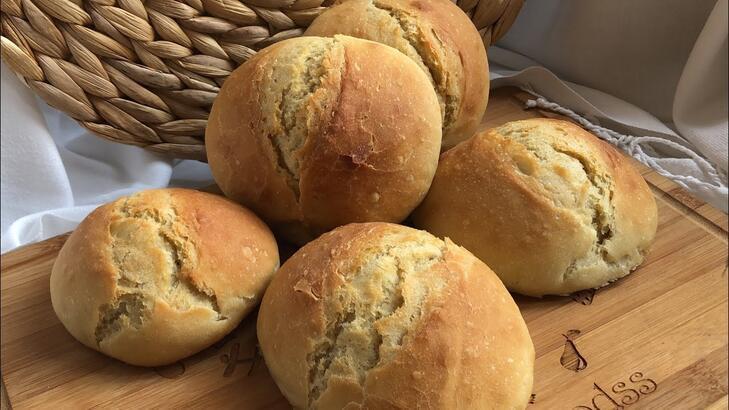
Heeding public health directives to stay at home, now many Turks have returned to an age-old tradition of making homemade bread, leading to unexpected climbs in demand for both yeast and flour.
As the coronavirus crisis touched every corner of life, people began to change their consumption habits, including starting to take care of some of their needs at home as their time there grew.
Bread making is at the forefront of these changes.
Things cleaner at home
"We can't go out due to the pandemic. Normally I would get the bread from a bakery but now we started making it at home," said Gökçe Küçük, who lives in the capital Ankara.
"I even bought a bread machine," she said, adding that she no longer trusts the bread from bakeries, as she demands stricter hygiene now.
Aslı Biçimseven from Istanbul, who also started making bread after she began working at home, echoed this view, saying she no longer sees buying bread from bakeries as hygienic in the pandemic era.
"They [bakery workers] put the bread in the bag with their hands and some don't use gloves. They touch different places with those hands. That's why I chose to make bread at home," she added.
Rising demand for flour
Demand for flour in Europe has risen sharply since the start of the coronavirus pandemic, said the head of the International Association of Operative Millers (IAOM) Eurasia.
Following the rapid spread of COVID-19, demand has been high for flour and flour products such as pasta, Eren Günhan Ulusoy told Anadolu Agency.
"In Turkey a fall in flour consumption after the closing of restaurants and cafes was balanced out by a leap in retail sales," he said.
While there has been no been change in overall flour consumption, there has been a shift towards the retail side of demand, he stressed, adding:
"In March, sudden demands in retail jumped from 5% of the market to 10-12 percent."
Stepped-up flour production
Explaining that Turkey boasts a flour production capacity more than twice its needs, Ulusoy added that it can redirect its inventories and capacity for exports to the domestic market upon request.
"In normal conditions, the demand for flour in Turkey stretches out evenly over 12 months, but [this March] we saw three months of demand in a single month," he said.
People stocked up by buying several packages at a time, but consumption did not grow at the same rate, he said.
"So the demand for the coming months was brought forward," he said, adding that to meet this sudden demand in the last half of March, Turkey immediately stepped up its flour production.
"In this period, our capacity utilization reached 85 percent. Now we see that demand has slowed down a bit, as inventories on the consumer side have strengthened considerably," he explained.
Yeast and flour mills
Demand for yeast has also risen for three weeks in a row, according to Ünsal Yamaner, the CEO of industrial yeast producer Lesaffre.
He said the demand on the retail side in March climbed about six-fold from the previous month.
At the same time, the demand for yeast from bakeries that supply bread to places such as hotels and restaurants fell, he added.
Turkey boasts 550 active flour mills with a total annual production capacity of 30 million tons.
The country's annual consumption per person of 160 kilograms already makes it one of the top flour-consuming countries in the world.
Turkey's flour exports in 2019 are estimated at 3.3 million tons and could grow further in 2020, depending on the course of the outbreak.